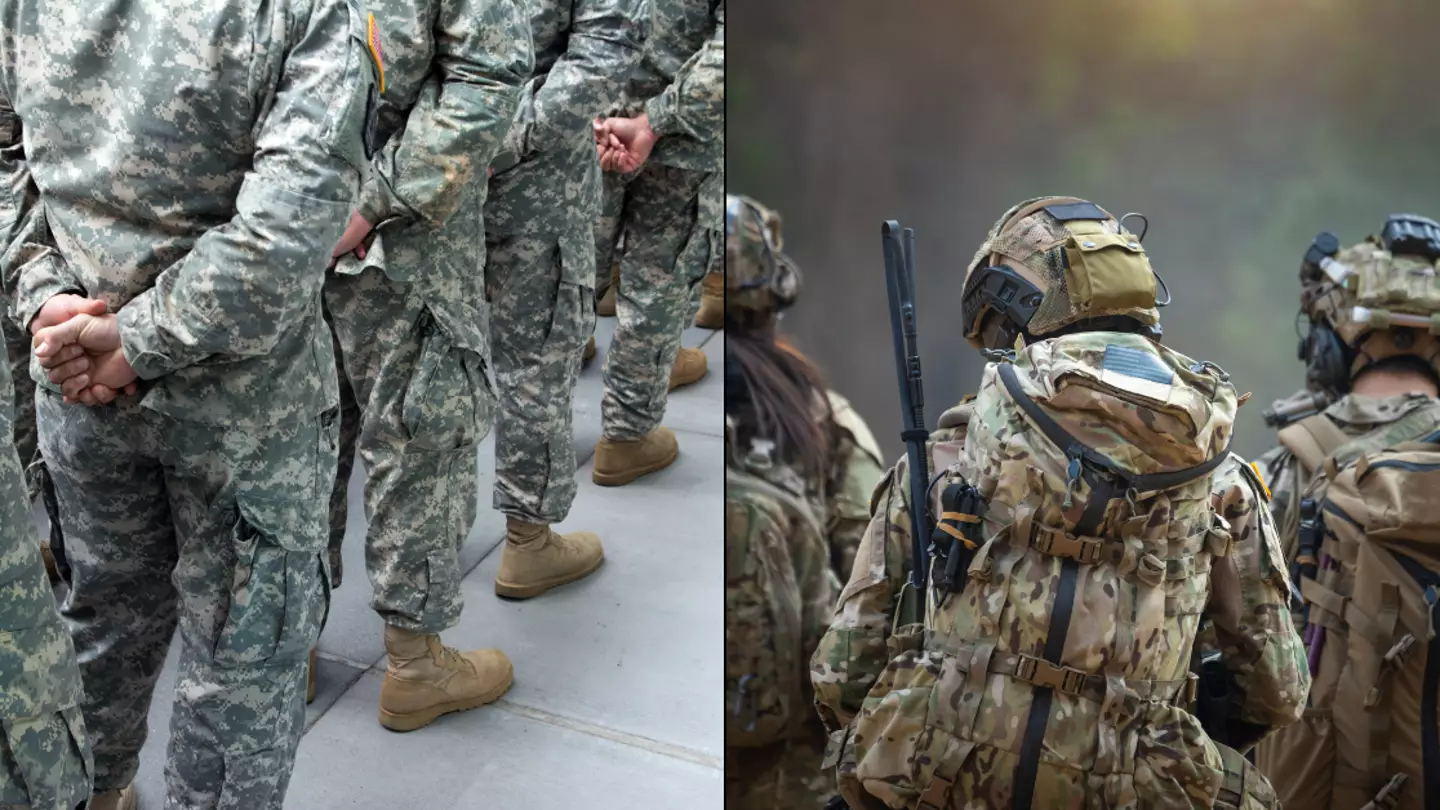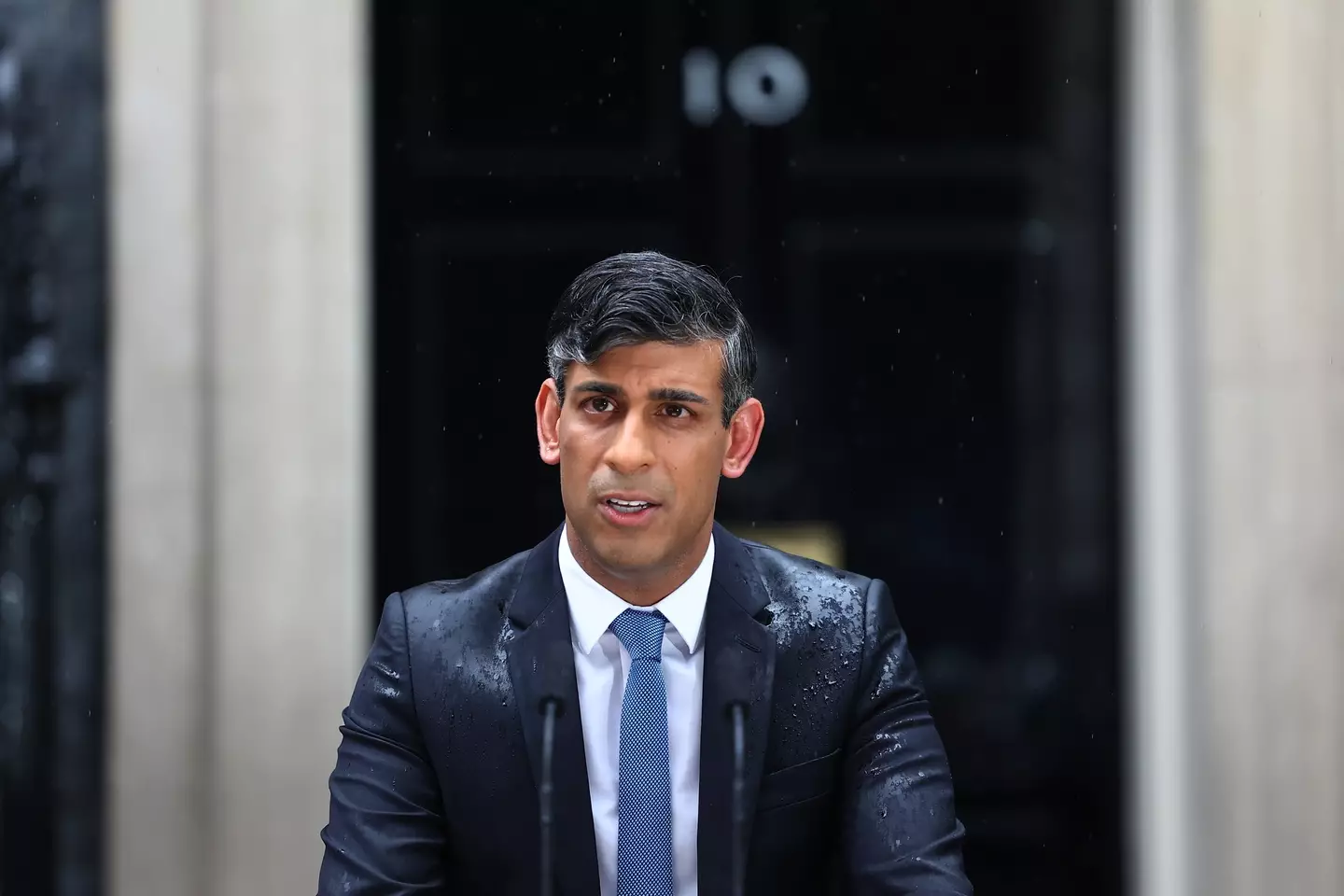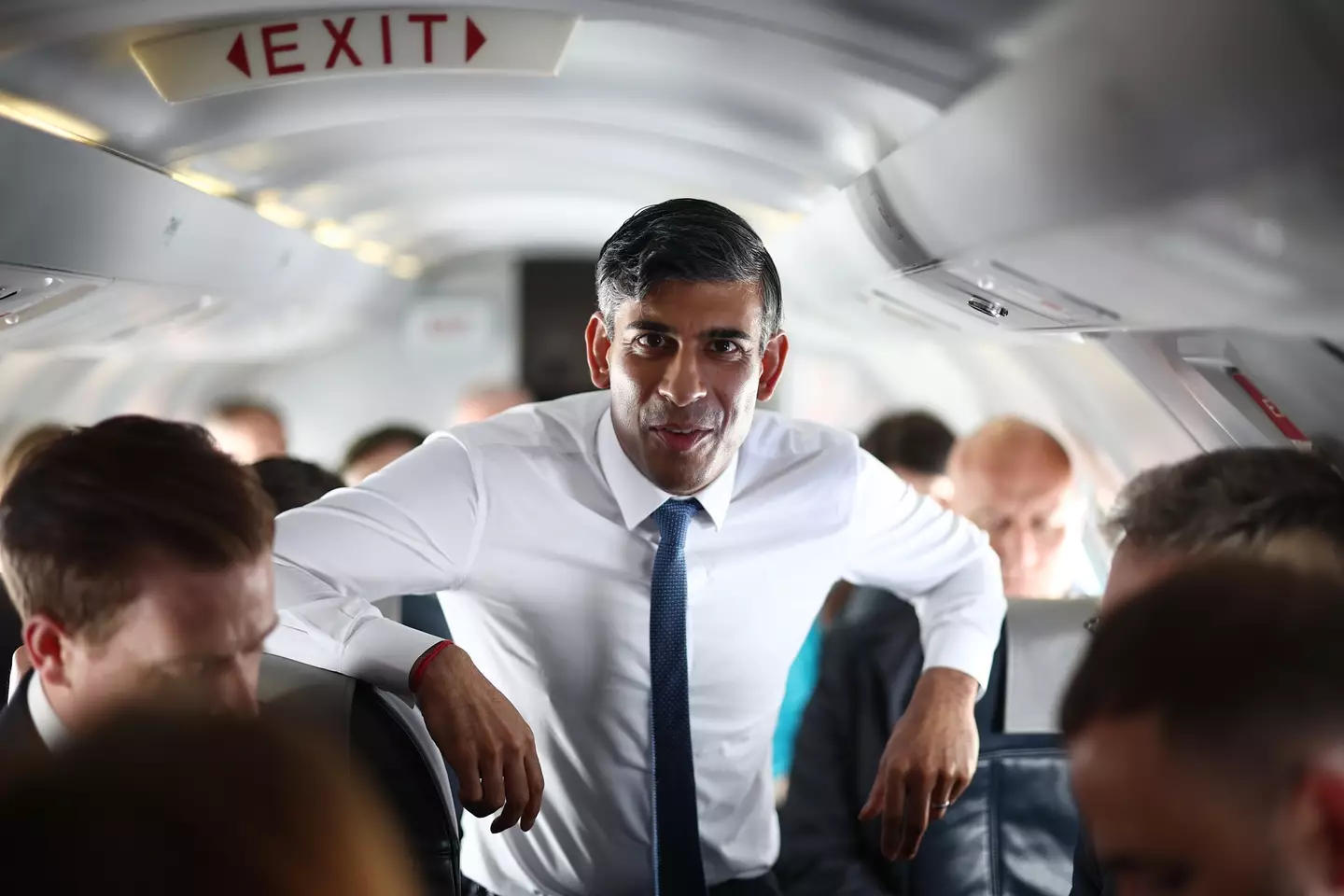
It's been denounced as a 'joke', a 'gimmick', 'desperate' and 'totally impractical', and that's just what the nation's politicians are saying.
The general public have been even less kind, piling in with a plethora of jokes about how daft an idea this is.
We are, of course, talking about Rishi Sunak's plan to turn things around for the Tory party just weeks away from a general election by bringing back National Service.
The prime minister has said that if the Conservatives win the next general election, which is pencilled in for 4 July, he will reintroduce National Service for 18-year-olds.
Advert
The policy idea was immediately met with a wave of derision from the youth of today and those sympathetic to their plight - with many believing that it's likely to be a bit more popular among older generations who never even had to do National Service themselves.

That's right, anyone in the UK who actually did National Service would be in their mid-80s or older by now, so many of the people warbling about bringing it back never even had it in the first place.
As for how it would work, first things first the Tories would have to win the next general election and the odds really do not appear to be in their favour for that happening.
Considering his campaign started in the rain and hasn't yet pulled out of that pretty calamitous level, it's looking unlikely that Rishi Sunak will be prime minister much longer.
Advert
But if he did somehow pull it out of the bag, here's how his National Service idea would actually work in practice.

What is the National Service scheme?
18-year-olds would be given the choice between a full year's placement in the armed forces which would be paid, or they could do one weekend's unpaid and mandatory 'volunteering' each month for a year.
Some of the places people would be expected to volunteer at would include the emergency services, as well as charities which are meant to deal with loneliness and helping the elderly.
Advert
Those 18-year-olds who went into the military would 'learn and take part in logistics, cyber security, procurement or civil response operations', according to the Conservatives.
The vast majority of the places would not be in the armed forces, so most teenagers in the UK would be doing the volunteering - though since it'd be mandatory there's not much voluntary about it.
What would happen if I refused?
While this plan has been touted as mandatory, home secretary James Cleverly said today (26 May) that there would be 'no criminal sanction' for not taking part, so you wouldn't be going to prison if you decided you didn't want to do it.
And it wouldn't come in on day one of a new Tory government under Sunak either, as they'd instead be setting up a commission to figure out how it'd actually work in practical terms.
Advert

Has the scheme being introduced before?
Former prime minister David Cameron introduced a scheme which became known as the National Citizen Service, which had no military element to it, and received a majority of the government's spending on youth in the UK.
However, in 2022 the budget was cut by two-thirds by the man who was chancellor at the time, Rishi Sunak.
The Independent reports that an investigation into this National Citizen Service found that it didn't meet government targets, failed to provide value for money and was described as 'a holiday camp for mostly middle-class kids'.
Advert
Meanwhile, the issue of National Service was actually discussed in parliament on Thursday (23 May).
Tory MP and under-secretary of state for defence Andrew Murrison said that 'it could damage morale, recruitment and retention and would consume professional military and naval resources', and that it would be 'difficult to find a proper and meaningful role' for those doing National Service.
The short version is that this is only happening if the Tories win the election, and that although it's meant to be mandatory, they wouldn't send you to prison for not doing it.
Topics: UK News, Politics, Rishi Sunak, Army